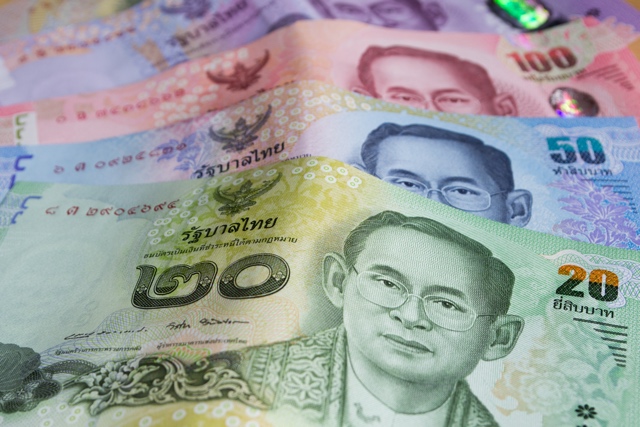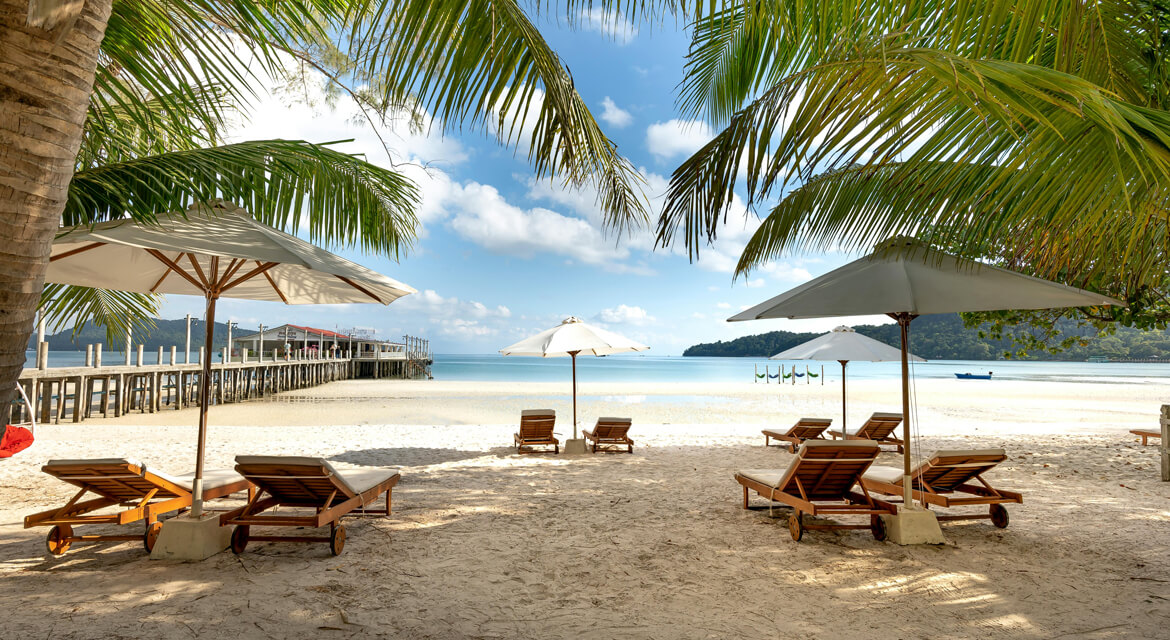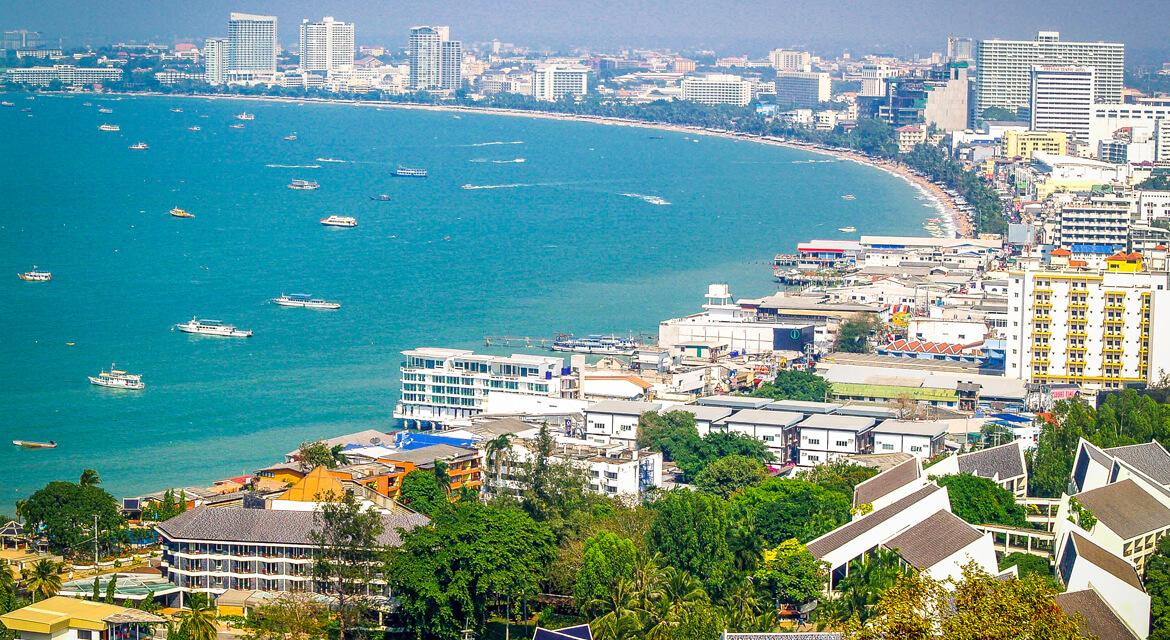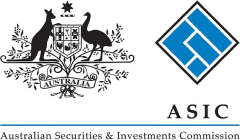Buy Thai Baht (THB) Always at the Best Rate
Get your currency fast 💸 Buy THB with AUD online or in-store.
Highly RegulatedCheck out 2800+ Reviews
Get your currency fast 💸 Buy THB with AUD online or in-store.
Highly RegulatedCheck out 2800+ Reviews
Compare us with other providers
See why S Money provides the best value
-

- 22.0078
- 104.21 AUD
- $2,000 AUD
- Best Price
-

- 20.7724
- 0.00 AUD
- $2,007 AUD
- $8 more expensive
-

- 20.8400
- 20.00 AUD
- $2,021 AUD
- $22 more expensive
-

- 20.2351
- 0.00 AUD
- $2,061 AUD
- $62 more expensive
How to buy Thai Baht
Store Collection
Pay ahead of time
Ready in 1-3 days. Then pick it up when it suits you.
Available in NSW, VIC & QLD
Post Office Collection
Collect at your local Australia post office.
Ready in less than a week.
Available Australia wide

Features
- Get more out of your money: Explore Thailand’s vibrant culture and stunning landscapes by buying Thai Baht (THB) online or in-store before your trip. S Money offers competitive exchange rates for THB, helping you maximise the value of your Australian Dollars.
- Exchange your way: Whether you’re planning a tropical getaway or a business trip, our simple and reliable platform makes it easy to buy foreign currency. Choose home delivery, click and collect, or in-store pick-up to suit your travel plans.
- Know you are getting the best rate: Compare the THB exchange rate with other providers and see how our rates stack up. S Money uses the real mid-market rate, so you can save money and avoid hidden fees.
- Convenience: Pay online or in-store and receive your Thai Baht in 2–3 business days.
Thailand’s official currency is the Thai Baht, abbreviated THB, and symbolised by ฿.
Banknotes come in 20, 50, 100, 500, and 1000 Baht, while coins include 1, 2, 5, and 10 Baht, plus smaller satang coins rarely used in daily life.
Prices in Thailand are usually displayed with the symbol before the amount (e.g., ฿50) and smaller transactions are often rounded to the nearest Baht.

| Country | Thailand |
| Official Currency | Thai Baht |
| Currency Code | THB |
| Currency Symbol | ฿ |
| Banknote Denominations | ฿20, ฿50, ฿100, ฿500, ฿1000 |
| Coin Denominations | ฿2, ฿5, ฿10 |
| In Stock | Yes |
| Current Rate | 22.0078 |
How long does it take?

- Confirm
- You’ll get a text and email once your payment is received.
- Delivery
- Orders take 2–3 business days depending on location.
- Updates
- You’ll receive notifications if there are any unexpected delays.
Buying Thai Baht in Australia
Where is the best place to buy THB?
If you’re planning your Thai adventure, having Thai Baht (THB) ready from the moment you land in Bangkok, Phuket, or other cities can make your trip smoother and more cost-effective. There are several ways to buy Thai Baht in Australia, each with advantages depending on your needs, travel style, and budget.
- Online: Buy Thai Baht online and choose home delivery or click and collect.
- In-store: Quick pick-up with ID, great for last-minute travel.
- Airport: Only used as a last resort, airport exchange rates are usually poor.
By planning ahead and using these options, you can ensure your travel money is sorted before your Thailand trip, giving you more freedom to explore white sandy beaches, bustling markets, and friendly local communities.
What is the Cheapest Way to Buy Thai Baht?
In Australia, for amounts up to AUD 5,000, it is often cheaper to buy Thai Baht online. For larger amounts, visiting a city currency exchange store can give you the chance to negotiate rates in person.
The key to getting the best deal is to compare your options for buying foreign currency in cash. Don’t just check the exchange rate, consider service fees, delivery fees, and any hidden charges that can affect the total cost.
Here are 5 popular ways to buy Thai Baht in Australia:
- Buying online – If you want to buy THB in cash, you can place an order online. You’ll need to provide ID, and most online services allow home delivery or click and collect. Online money changers like S Money often offer the best exchange rates.
- In-store – Picking up your THB in person is fast and convenient. Simply bring your ID, and it’s a good idea to call ahead to check rates and availability. City stores in Sydney, Melbourne, Brisbane, and Perth are usually the most competitive.
- Overseas – Sometimes buying Thai Baht in Thailand can be cheaper if you’re already travelling. Major cities like Bangkok or Chiang Mai have competitive money changers, but this is best if you need extra cash after arriving.
- International money transfers – If you’re sending money from Australia to Thailand, services like Wise or OFX are a cost-effective way to convert AUD to THB. These are often cheaper than using traditional banks.
- Travel money cards – Prepaid travel cards like Wise, Revolut, or 28 Degrees often provide better rates and lower fees than traditional bank-issued cards, helping you manage your travel money safely.
Fees and Charges

Service Fee
Varies by currency and amount.

Delivery
$23 fee for Post Office collection.

Paying by Card
1.6% processing fee.
How Much Money Should You Take to Thailand?
Before you exchange your Australian Dollars, plan your travel budget carefully. For a budget-friendly trip, expect to spend around AUD 50–60 per day, while a more luxury experience may require AUD 250–400 per day.
Average costs in Thailand (THB) for reference:

Hotel room
THB 1,000–1,500 per night

Motorbike rental
THB 150–300 per day

Private car and driver
THB 2,000–3,500 per day

Meals
THB 50–200 per person
Planning ahead ensures you have enough foreign cash for your trip without overpaying.
Must Visit Places in Thailand
From Bangkok’s vibrant streets to Phuket’s white sandy beaches, having foreign cash in hand ensures you can pay for attractions, restaurants, transport, and experiences without worrying about exchange rates or hidden fees.

Bangkok
A bustling city of temples, street food, and markets, with the Grand Palace and Wat Pho as highlights.
Chiang Mai
Famous for mountain temples, night bazaars, and elephant sanctuaries, perfect for culture and adventure.
Phuket
Stunning beaches, vibrant nightlife, and islands nearby for tropical exploration.
Ayutthaya
Historical ruins and ancient temples for a journey back in time.
Krabi
Limestone cliffs, clear waters, and popular spots like Railay Beach for nature lovers.
Pattaya
A lively coastal city with water sports, markets, and nightlife.
Koh Samui
Relaxed island vibes, resorts, and beaches, ideal for unwinding.FAQs About Thai Baht
The official currency of Thailand is the Thai Baht (THB). It is the only currency accepted nationwide, and its currency code is THB. When planning your travel money, it’s essential to convert your Australian Dollars to Baht for everyday spending.
For a one-week trip, expect to budget around THB 10,000–20,000 for a budget-friendly adventure, or THB 25,000–35,000 for a more comfortable experience. Be sure to factor in travel money cards or some foreign cash for convenience.
Travellers entering Thailand can bring in up to THB 50,000 in cash or the equivalent in foreign currency without declaring it. For larger amounts, it must be declared at customs.
Coins: 1, 2, 5, 10 THB
Banknotes: 20, 50, 100, 500, 1,000 THB
Coins are often used for small transactions, while banknotes are used for everyday purchases, transport, and markets.

